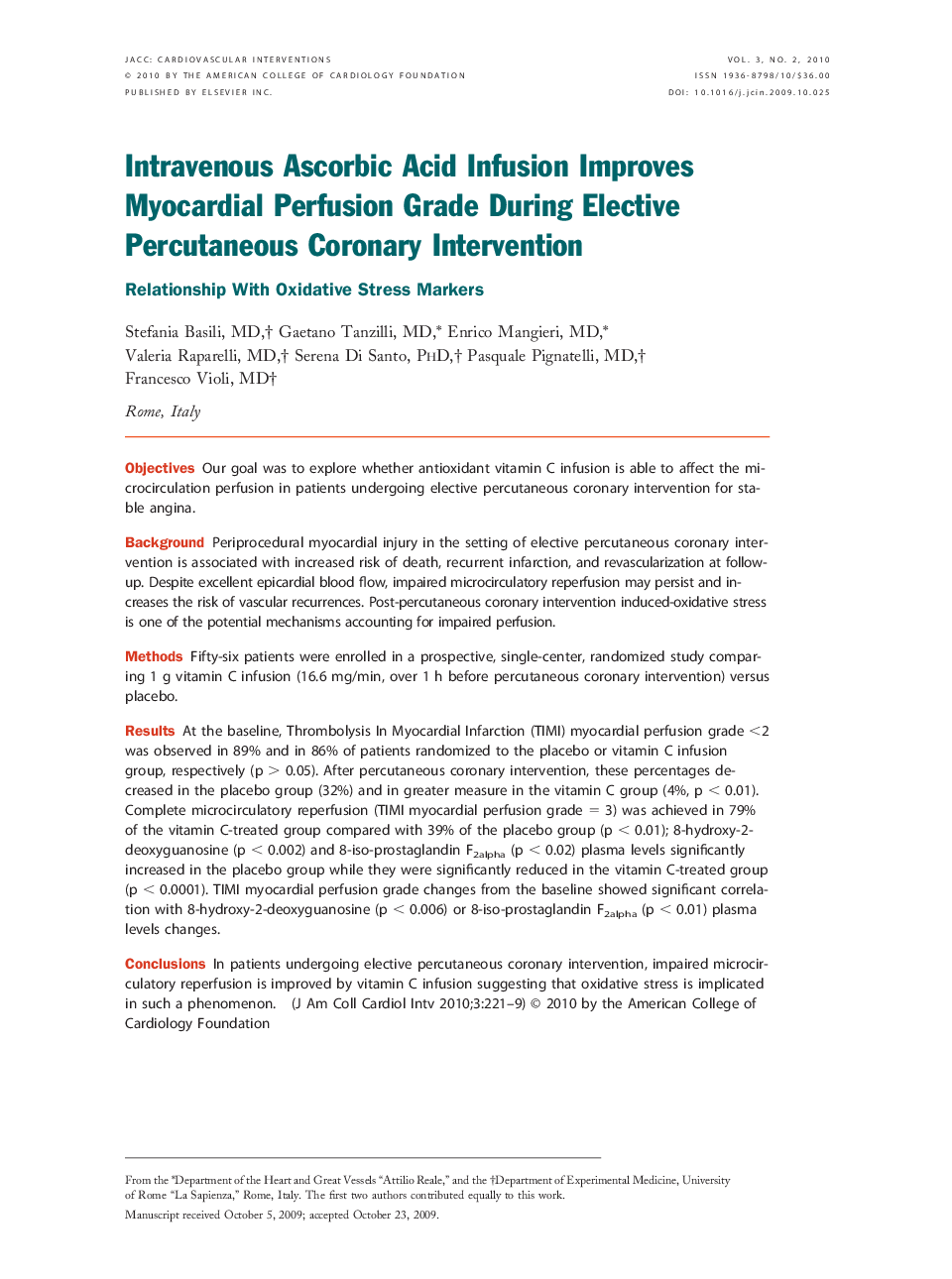| کد مقاله | کد نشریه | سال انتشار | مقاله انگلیسی | نسخه تمام متن |
|---|---|---|---|---|
| 2941963 | 1177094 | 2010 | 9 صفحه PDF | دانلود رایگان |

ObjectivesOur goal was to explore whether antioxidant vitamin C infusion is able to affect the microcirculation perfusion in patients undergoing elective percutaneous coronary intervention for stable angina.BackgroundPeriprocedural myocardial injury in the setting of elective percutaneous coronary intervention is associated with increased risk of death, recurrent infarction, and revascularization at follow-up. Despite excellent epicardial blood flow, impaired microcirculatory reperfusion may persist and increases the risk of vascular recurrences. Post-percutaneous coronary intervention induced-oxidative stress is one of the potential mechanisms accounting for impaired perfusion.MethodsFifty-six patients were enrolled in a prospective, single-center, randomized study comparing 1 g vitamin C infusion (16.6 mg/min, over 1 h before percutaneous coronary intervention) versus placebo.ResultsAt the baseline, Thrombolysis In Myocardial Infarction (TIMI) myocardial perfusion grade <2 was observed in 89% and in 86% of patients randomized to the placebo or vitamin C infusion group, respectively (p > 0.05). After percutaneous coronary intervention, these percentages decreased in the placebo group (32%) and in greater measure in the vitamin C group (4%, p < 0.01). Complete microcirculatory reperfusion (TIMI myocardial perfusion grade = 3) was achieved in 79% of the vitamin C-treated group compared with 39% of the placebo group (p < 0.01); 8-hydroxy-2-deoxyguanosine (p < 0.002) and 8-iso-prostaglandin F2alpha (p < 0.02) plasma levels significantly increased in the placebo group while they were significantly reduced in the vitamin C-treated group (p < 0.0001). TIMI myocardial perfusion grade changes from the baseline showed significant correlation with 8-hydroxy-2-deoxyguanosine (p < 0.006) or 8-iso-prostaglandin F2alpha (p < 0.01) plasma levels changes.ConclusionsIn patients undergoing elective percutaneous coronary intervention, impaired microcirculatory reperfusion is improved by vitamin C infusion suggesting that oxidative stress is implicated in such a phenomenon.
Journal: JACC: Cardiovascular Interventions - Volume 3, Issue 2, February 2010, Pages 221–229